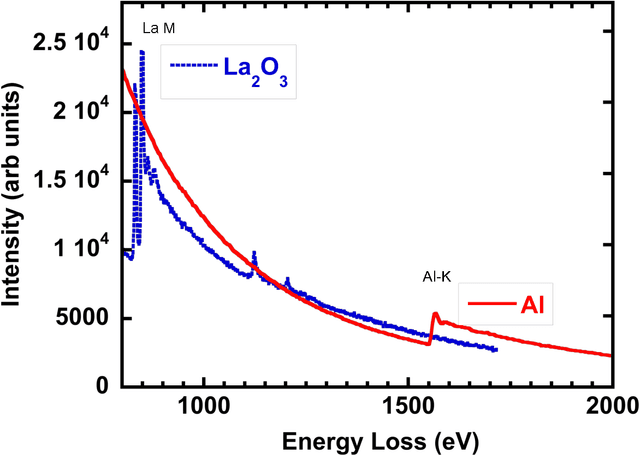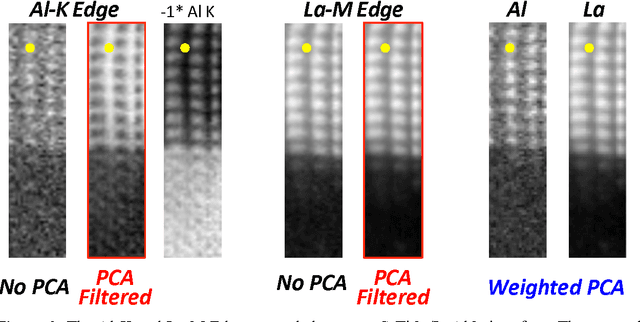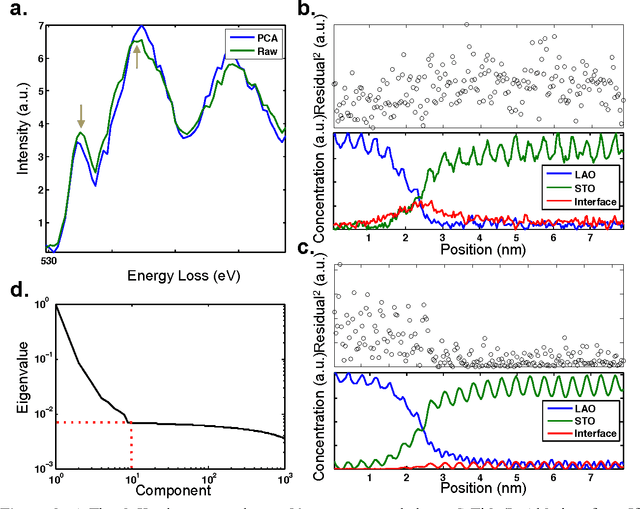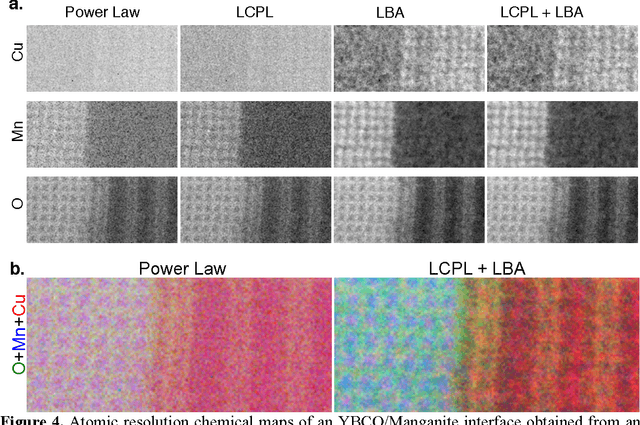Paul Cueva
Data Processing For Atomic Resolution EELS
Dec 13, 2011



Abstract:The high beam current and sub-angstrom resolution of aberration-corrected scanning transmission electron microscopes has enabled electron energy loss spectroscopic (EELS) mapping with atomic resolution. These spectral maps are often dose-limited and spatially oversampled, leading to low counts/channel and are thus highly sensitive to errors in background estimation. However, by taking advantage of redundancy in the dataset map one can improve background estimation and increase chemical sensitivity. We consider two such approaches- linear combination of power laws and local background averaging-that reduce background error and improve signal extraction. Principal components analysis (PCA) can also be used to analyze spectrum images, but the poor peak-to-background ratio in EELS can lead to serious artifacts if raw EELS data is PCA filtered. We identify common artifacts and discuss alternative approaches. These algorithms are implemented within the Cornell Spectrum Imager, an open source software package for spectroscopic analysis.
 Add to Chrome
Add to Chrome Add to Firefox
Add to Firefox Add to Edge
Add to Edge